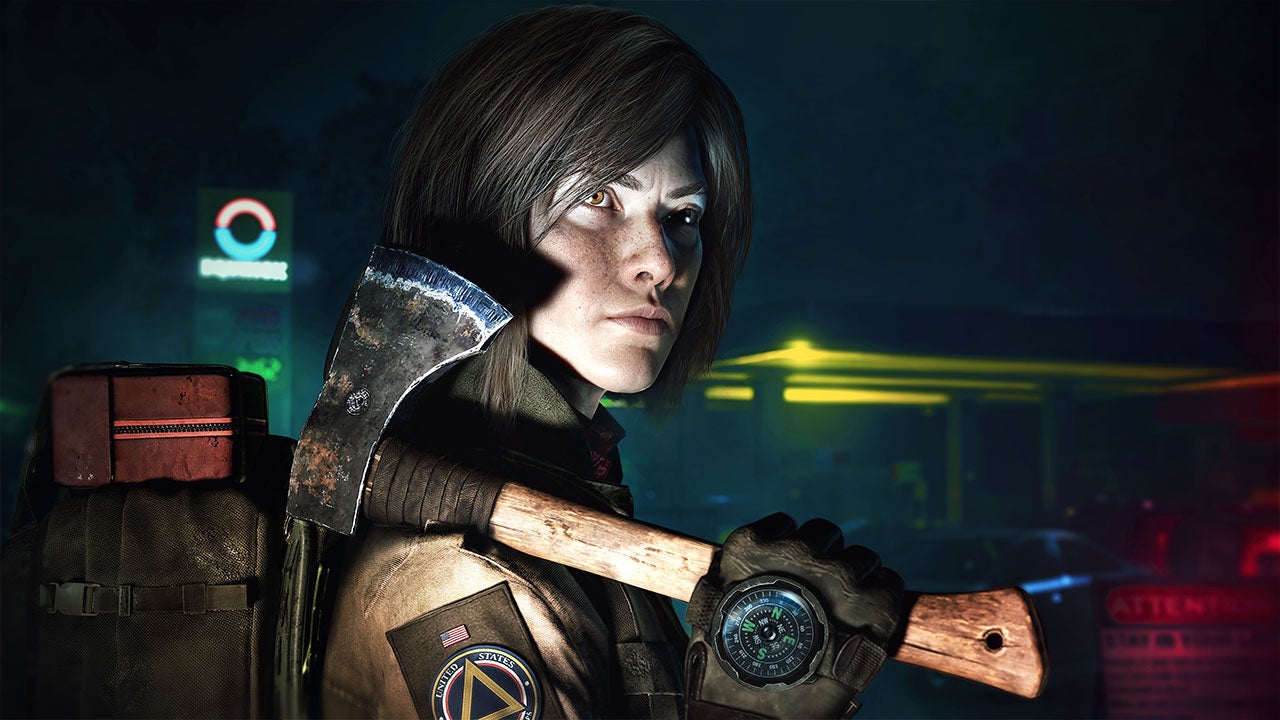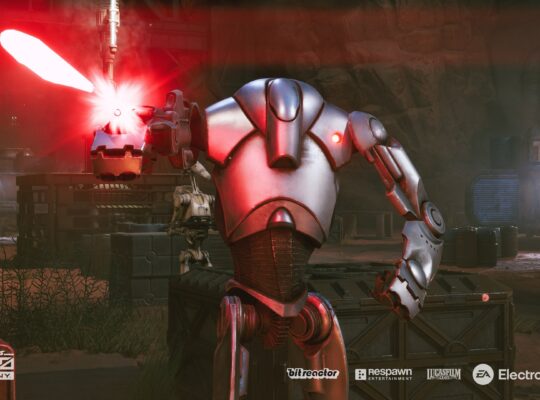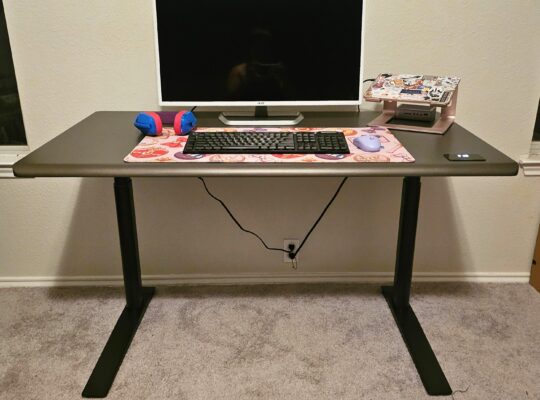Sometimes playing No More Room in Hell 2 feels like actually being in hell. One minute, you’re approaching a console to start flipping switches with friends, and the next, you’re completely stuck – no keyboard inputs work, you can’t equip any of your items, and your teammates have to try and lure a zombie over hoping it will put you out of your misery. Issues like this are part of a large pile of problems that could be excused by its Early Access label on Steam; there’s only one map released so far, character models are incomplete, and there are plenty more bugs to encounter. But that grace only goes so far. While No More Room in Hell 2 is technically playable, it’s not close to actually feeling Early Access-ready. And even if it weren’t riddled with bugs and light on content, it still doesn’t have a distinct identity to differentiate it from being yet another co-op survival horror shooter.
No More Room in Hell 2 follows a similar structure to its predecessor’s objective-based game mode. Eight players are dropped onto a forest-covered map, and must complete tasks while trying not to get killed by zombie hordes. As is common in survival horror games, you’ll have to scavenge for weapons, health items, ammo, and other gear to get a leg up, all of which will be in generally short supply. The first No More Room in Hell took a lot of inspiration from George Romero’s Dawn of the Dead with how the zombies (here called “stiffs”) function, and that continues to be to its benefit in the sequel: They’re slow and shambling, but are huge threats in groups. And the further you get into the map, the more dense the hordes get.
This is all pretty standard for a co-op zombie shooter, but No More Room in Hell 2 uses some smart tricks to help you boost both your kit and your team. You’ll spawn randomly at one of eight points around the edges of the sole map, called Power Plant, and work your way towards the middle, completing objectives along the way that’ll provide you with all-important gear but also up the difficulty as the hordes get bigger. The map isn’t huge, but it’s large enough that you might not run into another player until the final area at the center – your teammates don’t even show up on your HUD unless you’re in a party (in which case you’ll also spawn near them), and you’ll only hear them through voice chat if they’re physically close enough. That does mean a lot of each round involves going out of your way to team up, but it’s an excellent added objective that can make things feel more tense. If you fail, you’ll be stuck with some poor loot and nobody to help you up if you go down. It also adds a sense of progression that changes up the map as you go, and a great way to make it feel like your actions are rewarded.
This is the key area where No More Room in Hell 2 excels: fostering cooperation. Sure, I may have been trapped in a horrible glitch that prevented me from evacuating successfully with the rest of my team, but at least I got to watch them try everything they could to free me from my prison. As you all descend on the final area, you’re cleverly forced to work together, and you form some temporary camaraderie as a result. If you squint through the egregious bugs — clipping through walls, zombies not dying despite taking damage, guns not dealing damage at all — you can see a game that emphasizes teamwork in smart ways. And despite having just one map, it’s the perfect place to watch your crew’s story unfold.
The Power Plant offers plenty of opportunities for grouping up through optional objective locations. Completing them will provide you with loot: guns, bullets, health, and sometimes special items that give passive bonuses. You could potentially make it to the end without stocking up at one of these points, but this is a survival horror game where supplies are scarce, so you will want to get through at least one of these areas. They’re also easy to find; you can either navigate towards one with the help of your map and compass, or you’ll just stumble upon them. When one of two commanders comes over the radio (one of which is surprisingly voiced by Deux Ex’s Elias Toufexis) and tells you that there’s a church nearby with supplies or a bar that’s been booby trapped, I always wanted to swing on by — and any other player in the vicinity usually did too.
Gradually, you’ll find your teammates at these locations, where you’ll have to work together to complete a series of tasks for your reward. Usually that involves things like finding fuses and placing them inside fuse boxes to power up rooms, turning on generators, or connecting wires within wire boxes. Most require basic puzzle solving and timing to complete, but that’s infinitely more difficult when you’re being hounded by zombies. Additionally, solving these puzzles brings you into a separate menu that you have to exit if you want to fight back. It’s times like these where it becomes important to watch your teammate’s back. If they can focus on the task at hand, and you somehow defeat all the zombies, you can move onto the next one. There are even tasks that involve having one player read a randomly-generated code to another to unlock a screen or move a process forward.
By the time you reach the final objective, everybody still alive will have grouped up naturally. Of course, this is when the difficulty is amped up, all but requiring you to work together and coordinate your moves. It’s a tense finale where you’re running around, flipping switches, and entering codes to boot the plant back up — all while trying to avoid the biggest zombie horde yet. You can all split up and handle different parts of this objective, but you will all still be in the same area working toward the same goal, and it’s, quite frankly, impossible not to help your teammates at least a little bit since there are so many zombies to kill.
Outside of a few tips (save your ammo, jump on cars to get away briefly, etc.), you won’t get any in-depth tutorials when you first launch No More Room in Hell 2, and your first round will likely be stressful and confusing as a result – especially if you run into a game-breaking bug. Since there’s only one map, it doesn’t take long to figure out how to complete the various objectives and where to go to successfully complete a run, but this is also where things get the most repetitive. The first time you encounter some of these locations, like the Lookout Tower or the Ranger’s Station, it can be a tense battle to turn on the power, fill up generators, and hit all the correct buttons before getting overrun by zombies or going through all your supplies. After a few rounds, though, you start running through those areas easily. At least, that is until you run into some unwelcome difficulty spikes depending on if you happen to encounter a teammate or have enough gear.
You also don’t need to approach every zombie encounter by making a decision to shoot or not to shoot. The tools you have in your arsenal and how you use them have an impact, too. You’re always equipped with a flashlight, but having it on will alert zombies. Using a shotgun can disperse a group, but will quickly alert even larger groups waiting nearby. There are items that can let you control crowds, such as a radio or a deployable lamp, but they’re rare and tough to throw down in late-game scenarios where you’re completely surrounded by zombies, making them interesting ideas that aren’t very useful in practice.
There’s a sort of immersive sim quality to how you complete each No More Room in Hell 2 run. Beyond how you approach combat, you can take multiple routes to different locations – there isn’t a lot of variety, but it’s enough that you can run in any given direction and most likely find a path forward. The level design is on its way to being excellent, with strategically placed dirt piles or trucks that let you climb over fences and lead you to alternate routes. That said, there are also a few areas that are too large or feel outright unnecessary to begin with that can lead to you getting lost.
There are also multiple character types you can choose from before starting a run, each with forgettable names and descriptions like “Football MVP” or “Marine Veteran.” They all provide distinct but small buffs to things like two-handed melee damage, stamina, or flashlight battery lifespan. You don’t get a choice of character on your first run, but after you die, you’ll select between three randomly-generated types each time. As long as you don’t die, you can continue building these characters up through experience and supplies collected during a run. If you do die, you lose everything, and you’ll still lose progress if you leave a match early to try and avoid death. It incentivizes you to do well and provides an actual end if you die in-game (and come back as a zombie your teammates can kill). That connection would be more impactful, however, if there were more than the small handful of character models that frequently repeated.
It’s these cut corners that currently pull me out of what could be a game on track for a standout full release one day. Yes, there’s a lot of leeway you can give to an Early Access launch, but many of the pieces of No More Room in Hell 2 aren’t even close to complete. For all the things I like about the map, there are also paths on it that quite literally lead to nowhere. While there are plenty of objectives scattered around, they’re obnoxiously inconsistent in terms of difficulty; Some feel downright insurmountable in small groups, while crossing a bridge after opening its gates — something that should feel like a huge moment — can be completed by simply running forward and occasionally strafing.
Then there are the bugs — so, so many bugs. Every Early Access game (and most fully released ones, for that matter) has them, but many here are inexcusable. When I first started playing at launch last week, shotguns didn’t always do damage. I was clipping through walls into closed off rooms where I quickly became trapped by zombies, some of which didn’t die despite constantly being peppered by bullets. Objective markers wouldn’t show up on the HUD, which is kind of a problem when you’re a newcomer and don’t know where you need to go. Sometimes I’d look at a teammate and they’d just be a floating head. It’s a mess.
To its credit, developer Torn Banner Studios has been working diligently on hotfixes since launch, and has released some very impactful updates over the course of my review period. Shotguns are now more reliable, map markers consistently show up, and I can actually accomplish puzzles without getting stuck or clicking on a switch multiple times before it responds. There is still a long way to go before it reaches an acceptable state, but prioritizing hotfixes instead of working on the planned content roadmap is the right call in the short term, and has already resulted in some huge improvements.
Unfortunately, those content updates are desperately needed, too, and ideally something in them to help it stand out from the pack. It’s been eight years since No More Room in Hell 2 was first teased, and over a decade since the original No More Room in Hell was spun off from a Half-Life 2 mod into its own standalone game. While the sequel follows a similar structure to its predecessor, with the same darkness-drenched atmosphere, scarce loot, and relatively weak characters, it doesn’t offer the same ethical dilemmas and tension building. Gone are the child zombies that were much faster than the standard ones and left you understandably uncomfortable about killing them, for example. The goal was to build a world that felt like an actual apocalypse, where your choices mattered beyond just survival. In contrast, No More Room in Hell 2 is on its way to presenting a world that feels like it’s falling apart around you, but in terms of tone and the underlying story, it’s just another standard zombie shooter with a focus on getting rescued at the end.












